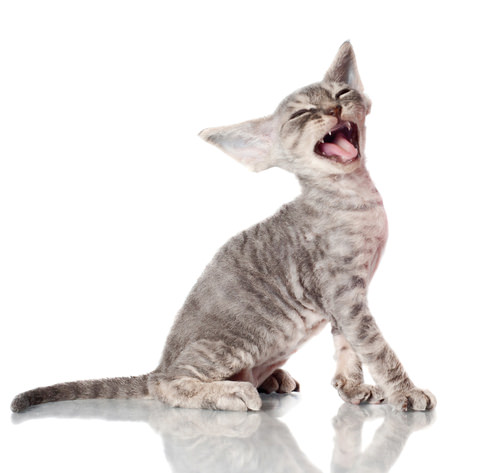Domestic cats are very evidently members of the cat family, like lions, leopards and panthers. Family resemblance is strong among them and they exhibit very similar mannerisms and characteristics. When you think of a lion, you think of its roar, but did you ever wonder why your house cat makes no roar?
Researchers as early as 1834, noted some anatomical differences between roaring and non-roaring cats. It was discovered that the lion possesses an incompletely ossified hyoid apparatus (a delicate boney box in the throat). Incomplete ossification in which the box is not entirely composed of rigid bone, allows the lion to lengthen his “voice box” as needed to deepen his sounds. This action is somewhat analogous to a slide trombone.

This theory was accepted as the explanation of why a lion could roar until 1988 when M.H. Hast noted a pad of tissue also present in the roaring cats (Panthera spp- lions, tigers, leopard) that was smaller in the non-roaring cats (Felis spp-your house cat, puma, bobcat and cheetah). The pad of tissue and an enlarged vocal fold in the Panthera cats act like a mouthpiece and bell of a trumpet. These features allow the resonance and depth of the sound that manifests as a roar.
So your cat may have the motivation and the desire to roar like a lion, but he just does not have a trumpet with a mouthpiece and bell or a slide trombone!
